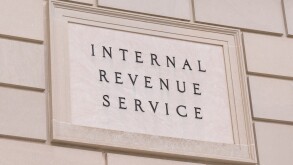In a previous column we identified a number of issues associated with the BEAT that operates under certain circumstances to reduce or deny the benefit of certain deductible payments made by a US taxpayer to a related foreign person. Since the writing of that column, the New York State Bar Association (NYSBA) issued a report on the BEAT and made a number of observations and recommendations. We highlight a few here.
The NYSBA has suggested that the Treasury should consider not treating payments as base eroding payments if they are made pursuant to certain transactions that are effectively conduit transactions. An example situation would be where a US person acts as a 'waystation' for transactions between two foreign related parties in a shared services context. Of course, existing anti-conduct principles could be applied even in the absence of any regulatory action, but it certainly would be helpful for regulations to confirm that conduit arrangements that are not fundamentally base eroding do not raise BEAT concerns.
The BEAT rules do not include the cost of goods sold (COGS) as base eroding payments, and Congress expressed a clear intent that COGS should not be treated as base eroding payments. Certain commentators, including the NYSBA, have observed that under certain circumstances COGS may include the value of intellectual property connected with the sale. The NYSBA stated that it does not recommend that the Treasury writes regulations limiting the scope of the COGS exception to payments that include the value of intellectual property. The report noted that Congressional intent was clear that COGS should not be treated as base eroding payments. Indeed, any such regulation would be contrary to Congressional intent.
The NYSBA recommended that the services cost method (SCM) exclusion be construed to mean that the actual cost element of SCM services be excludable from base erosion payments, irrespective of whether a markup on such services is charged (for example, because the foreign country's transfer pricing law requires a markup). This is a fair reading of the statute and Congressional intent, since in our view the exclusion focuses on the nature of the services performed and not the precise amount charged.
The NYSBA points to a possible statutory ambiguity regarding whether the base erosion percentage of any net operating loss (NOL) is determined with respect to the year of its origination or the year of its utilisation. The NYSBA said it believes that the correct grammatical read of the statute is that modified taxable income for the year is calculated without the relevant amount of NOL deduction allowed for the same year (therefore irrespective of the year in which the base erosion percentage of such NOL is determined). This reading also funds support from the context of the statute.
The NYSBA also recommended that the Treasury carve out an exception for payments made by a US shareholder to its controlled foreign corporation (CFC) when the payment is Subpart F income to the CFC.













